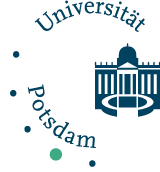Associated Doctoral Researchers

Dragana von Kaphengst (geb. Simovic)
Master of European and European Legal Studies
Research topic
“Quality of Management in Development Aid – State-Owned Organizations vs. For-Profit Companies”
Curriculum vitae
ACADEMIC TRAINING
2014
Potsdam Graduate School; Potsdam, Germany
2009 – 2010
Master of European and European Legal Studies, Europa-Kolleg Hamburg, Hamburg University
2005 – 2006
Exchange year at the University of Montana, Department of Political Sciences, Open Society Institute Scholarship, Missoula, USA.
2003 – 2009
Bachelor Studies at the Faculty of Political Science/Department of International Relations, Belgrade University, Belgrade, Serbia
PROFESSIONAL EXPERIENCE
2012 – 2014
Junior Project Manager, Gesellschaft für Internationale Zusammenarbeit (GIZ), Belgrade, Serbia
2011
International Parliament´s Scholarship, Internship at the German Parliament, Berlin, Germany
2010 – 2011
Project Assistant at Civic Initiatives, NGO, Belgrade, Serbia
RESEARCH INTERESTS
- Quality and effectiveness of development aid
- Public and private management
- Evaluation and monitoring of development aid
Abstract
Quality of Management in Development Aid
In light of the debate on the consequences of contracting out of traditionally public services, this research will focus on contracting out within development aid, as the phenomena has largely escaped scholarly attention. Proponents of New Public Management (NPM) have placed a lot of value on free market and competition and claimed that contracting out should lead to cost-reductions and better quality of services. Available evidence suggests that these are caused by improved management practices spurred by competition.
Management practices within development aid projects constantly show the need for improvement, as empirical research shows poor quality of project designs, massive shortcomings by project monitoring and a low learning potential of aid agencies. The question that this research will strive to answer is whether contracting out in development aid leads to better management practices at the project level. Necessary conditions for successful and effective outsourcing of service delivery has been done in many fields, from medical services to transportation and prison management, but the field of development aid is faced with rather scarce research about outsourcing phenomenon, although contracting out has been present in the practice of bilateral and multilateral aid agencies since the 1980s.
The starting underlying presumptions for the research is that better management practices can lead to better results and increased effectiveness of development aid interventions. The results of the research should contribute to the on-going debate about differences between in-house service delivery and outsourcing.
A unique chance to examine contracting out consequences without mixing them with change of ownership effects (which often coincide when outsourcing) is given through a very unique way of work conducted by the Gesellschaft für Internationale Zusammenarbeit (GIZ). Most of the projects are implemented by the GIZ their own staff, and not contracted out, but the GIZ has a commercial department, GIZ International Services (IS), which acquires funds by applying to competitive tenders published by international organizations, governments and private businesses. This creates a possibility to examine how competitive contracting influences project management processes in the field, which is relevant as it has a direct impact on the success of projects.
